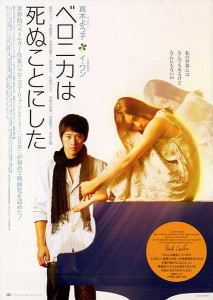
Towa lives in a peculiar sanatorium after committing suicide. Convalescing in sanatorium, she is informed that she has only 7 days to live. Isolated within their worlds, strange people live in this sanatorium and try to avoid making any contact with her. However, Claude a man who lost his power of speech feels sympathetic towards her and their every lovable things give true colors to the life and inspire Towa’s honest desire for the life.
Read More »
Tag Archives: japanese
Amida-do dayori / Letter from the Mountain (2002) Takashi Koizumi, Akira Terao, Kanako Higuchi, Shoji Arano, Drama
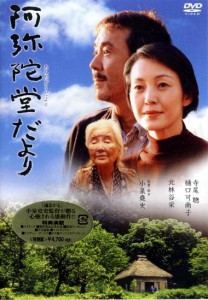
As the film begins, Takao (Akira Terao) and Michiko (Kanako Higuchi) have already pulled up their Tokyo roots and moved to a village that is Takao’s ancestral home. They visit a thatched cottage that serves as a memorial shrine (amidado) for the village dead and chat with the attendant, the spry 96-year-old Oume (Tanie Kitabayashi). Together they admire the view — from an inspiring distance. Oume, it turns out, is a kind of sage, whose thoughts and observations are a popular feature in a column in a local newsletter. Her amanuensis is a mute, sweetly smiling young woman named Sayuri (Manami Konishi), who is as devoted to Oume as Oume is to the souls of her beloved dead.
Read More »
Musashino fujin / The Lady of Musashino (1951) Kenji Mizoguchi, Kinuyo Tanaka, Yukiko Todoroki, Masayuki Mori, Drama
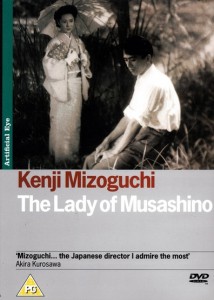
Set in post-war Japan, The Lady of Musashino tells the story of Michiko, a disillusioned young woman trapped in a loveless marriage. She confides in her younger cousin, Tsutomo, and the two become close, but decide not to consummate their affair. He instead becomes involved with the flirtatious Tomiko, who is also conducting an affair with Michiko’s husband. When Michiko finds that her husband has abandoned her, she decides to take her fate into her own hands.
Read More »
Riarizumu no yado / Ramblers (2003) Nobuhiro Yamashita, Keishi Nagatsuka, Hiroshi Yamamoto, Machiko Ono, Comedy
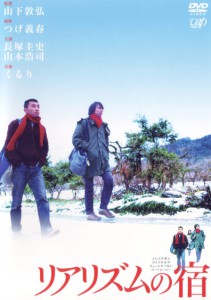
Tsuboi and Kinoshita have just arrived at a desolate town. Both of them are amateur filmmakers. Tsuboi is a screenwriter and Kinoshita a director. They have come to this town because Funaki, an actor, has tempted them to come here, but he has yet to arrive. Tsuboi and Kinoshita start wandering around the town and happen to meet a young woman, Atsuko. The three of them go on a journey together and become friends. But one day, Atsuko disappears.
Read More »
Onna no Za / A Woman’s Place (1962) Mikio Naruse, Hideko Takamine, Yôko Tsukasa, Yuriko Hoshi, Drama
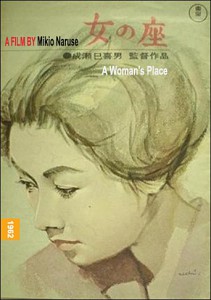
The widow of the eldest son of a large family is financially dependent on her husband’s relatives.
Read More »
Juhyô no yoromeki / Affair in the Snow (1968) Yoshishige Yoshida, Mariko Okada, Isao Kimura, Yukio Ninagawa, Drama, Romance
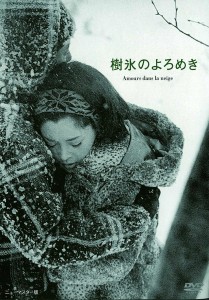
In an isolated mountain resort, a woman gets involved in a love triangle between herself, her volatile lover and her ex-boyfriend, for whom she had platonic feelings.
Read More »
Ginza keshô / Ginza cosmetics (1951) Mikio Naruse, Kinuyo Tanaka, Ranko Hanai, Yûji Hori, Drama
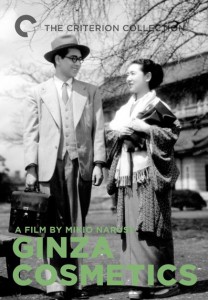
A few days in the life of a quiet geisha, single mother of a young, smart boy, in the lively Tokyo quarter of Ginza. A woman devoted to other people’s needs, she will end by taking part herself in one of the many disguises of Ginza.
Read More »
Taiheiyô hitoribocchi / Alone Across the Pacific (1963) Kon Ichikawa, Yûjirô Ishihara, Masayuki Mori, Kinuyo Tanaka, Adventure
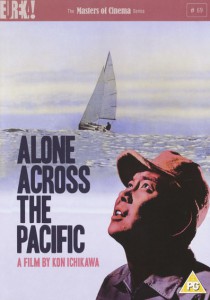
Kenichi Horie is determined to challenge his family, the law and the nature crossing the Pacific to America in a small sailboat. Despite his careful planning many unforeseen events will test his determination.
Read More »
Shunpu den / Story of a Prostitute (1965) Seijun Suzuki, Tamio Kawachi, Yumiko Nogawa, Isao Tamagawa, Drama, War
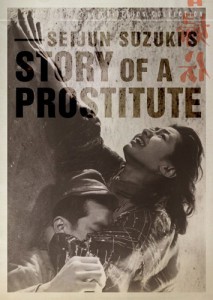
In WW2 Manchuria, a prostitute grows to resent an abusive adjutant and falls in love with his aide.
Read More »
Station / Eki (1981) Yasuo Furuhata, Ken Takakura, Chieko Baishô, Ayumi Ishida, Drama
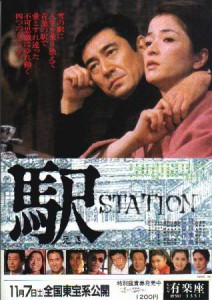
A very beautiful film. This is a Ken Takakura vehicle, and as such follows his formula. Takakura plays to type as the laconic brooder who suffers multiple tragedies with manly stoicism. While the variety of his film varied greatly, his films with director Yasuo Furuhata were always of the highest quality, and this is no exception. Takakura is a cop training to be a sharpshooter for the Olympic games, he divorces his wife and abandons his daughter when he discovers she’s had an affair. Later his coach is gunned down by a fleeing criminal. Years later Takakura returns to his snowy hometown and starts an affair with a middle-aged bar owner. The story is a bit thick, with a number of subplots, yet it is extrordinarily melancholic, as Takakura seems to regret everything he’s done in his life and is made over and over again to relive his mistakes. There is very little “action” as such, and no yakuzas of any kind; but beyond that this is one of the most lushly beautiful and emotional films you can see (if you can see it), with an excellent score by Ryudo Uzaki.
Read More »
Minagoroshi no reika / I, the Executioner (1968) Tai Katô, Chieko Baishô, Yuki Kawamura, Sanae Nakahara, Drama
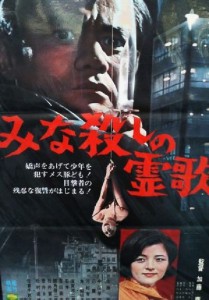
Police investigators investigate the link between a serial killer’s machinations and a young man who committed suicide after five women raped him.
Read More »
Early Spring / Sôshun (1956) Yasujirô Ozu, Chikage Awashima, Ryô Ikebe, Teiji Takahashi, Drama
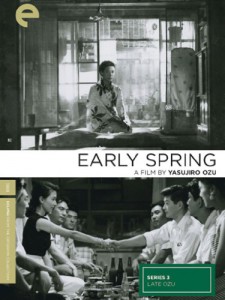
A young man and his wife struggle within the confines of their passionless relationship while he has an extramarital romance.
Read More »
Maria no Oyuki / Oyuki, the Virgin (1935) Kenji Mizoguchi
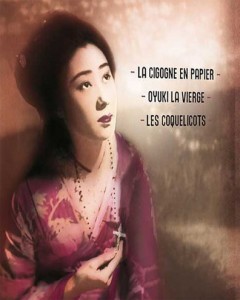
Oyuki, the Virgin is based on Kawaguchi Matsutaro’s adaptation of Maupassant’s “Boule de Suif” (“Lump of Fat,” also the inspiration for Ford’s Stagecoach). To this story Mizoguchi added some of his own elements. Maupassant’s original work, set during the Franco-Prussian War, is the story of a group of people who try to flee the battleground in a horsedrawn carriage. The bourgeois use the expression “lump of fat” to refer sarcastically to the prostitute who is riding along with them. When they are caught by the enemy, they offer to send her to the commander as a human sacrifice. This done, when they leave the battlefield the next day, all they do is censure her and call her vulgar.
Read More »
Hachi no su no kodomotachi / Children of the Beehive (1948) Hiroshi Shimizu
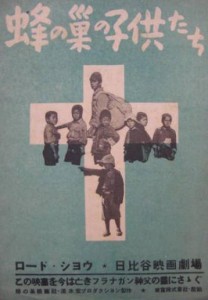
The movie focuses on the plight of ten war orphans hailing from different cities across Japan. With nowhere to go, they scavenge around train stations, scratching out an existence by means of black market work for a one-legged tramp whilst avoiding being picked up by the police for vagrancy. Soon however, they find a more inspiring role model in the figure of a nameless soldier just repatriated after the war. An orphan himself, the soldier also has no home to return to, and so sets out across the country with the kids in tow in search of work before settling on the goal of leading them to the orphanage where he himself grew up.
Read More »
Nihon kuroshakai / Ley Lines (1999) Takashi Miike, Shô Aikawa, Samuel Pop Aning, Takeshi Caesar
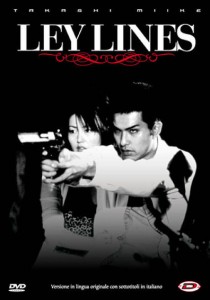
A group of Chinese youths living in Japan struggle to make their way in life and eventually find trouble with the local crime syndicate.
Read More »